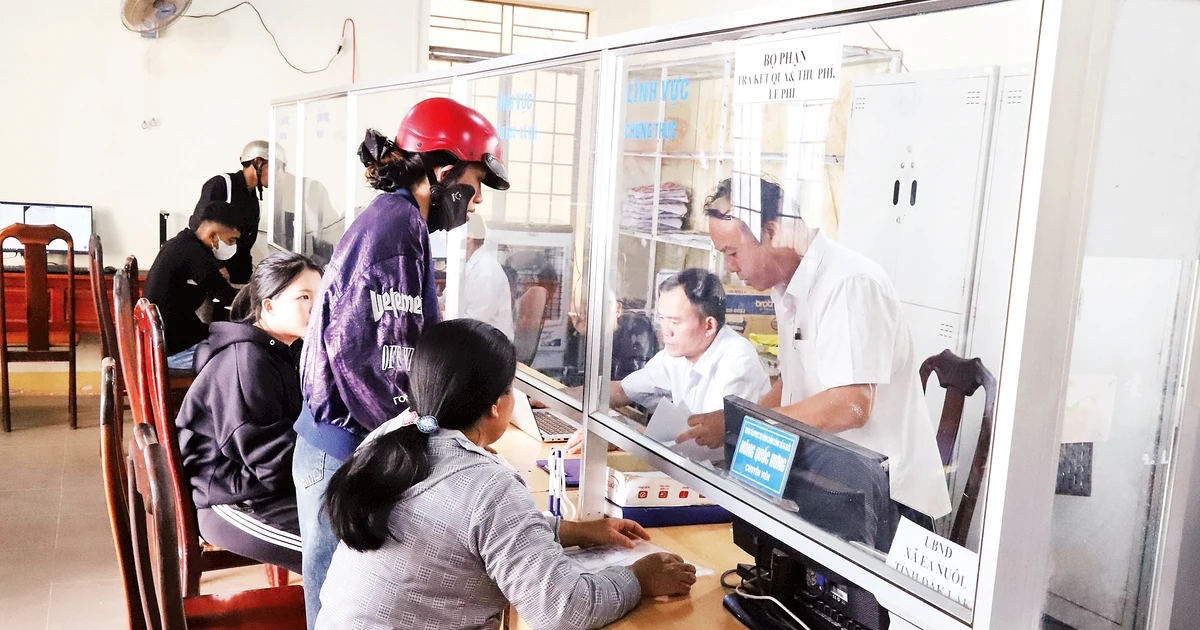Parents need to accompany their children in using social networks and entertainment activities. Photo: Illustration
It is not difficult to see young people, especially students, spending hours surfing TikTok, Facebook, Instagram or YouTube Shorts to follow or "follow" hot content trends. Just a short funny video , an eye-catching dance, or a unique saying can immediately create a "fever" that covers all platforms. Not only entertainment, many young people see social networks as a channel to express themselves and affirm their personality.
“I watch TikTok about 3 hours a day. There are trends like dancing that are fun and easy to learn, so I often film clips with my friends to post to increase likes and followers,” Tran Khanh Nhi (11th grade student in Hac Thanh ward) shared.
Not only students, but also many children aged 3 and 4 are "fascinated" by short videos on the Internet. Ms. Pham Thi Thanh in Hac Thanh ward, due to her busy work, often has to work at home. At times like that, she often lets her 4-year-old daughter watch TV or iPad. Ms. Thanh shared: "I often see my child learning actions from videos on social networks. But recently, she has been saying meaningless words and is afraid of cartoon characters on the Internet such as: tung tung sahur, tralala... Through researching on the Internet, I know that these are characters in the branirot universe or "brain rot", accompanied by meaningless content that is harmful to children".
It can be seen that social networks are opening up a new space with many opportunities for positive change for everyone. However, it also contains many pitfalls if young people approach it without being selective, especially children. "Toxic" trends such as dangerous challenges (eating super spicy chili, breaking objects), showing off their bodies, showing off fake "luxurious" lives, or meaningless, unethical content and information embedded in videos make children curious, easily leading to blind imitation.
Not only is there a flood of content that is not suitable for children, social networks also contain potential conflicts and disagreements from the internet leading to real life or fraudulent activities, luring children online. Many children using social networks for a long time also leads to social network addiction, many abnormal symptoms of psychology and health appear.
According to psychologists, current trends on social networks have, are, and will affect all levels of society, including children. Because children are very susceptible to both positive and negative influences from the external environment.
Master of Psychology Pham Thi Thu Hoa, Faculty of Education , Hong Duc University said: “Children (especially primary and secondary school students) have "immature" social development, not commensurate with their physical development. Although they are exposed to many social issues, their ability to analyze, select, and evaluate is not high. Therefore, they are easily attracted to trends. This problem will become dangerous, become serious, and even cause unpredictable consequences if their reception of trends on social networks is not guided, supported, warned... regularly and promptly".
Many children, when negatively affected by social networks and social network trends, are easily confused, worried, scared... leading to unpredictable behaviors. Poor communication skills, poor language use or difficulty in self-control can easily lead to conflicts and violence. They even gradually lose the ability to select values, increasing the risk of chasing virtual values, ignoring cultural and ethical values, losing themselves... greatly affecting current and future social development.
According to Specialist Doctor I Luong My Linh, Deputy Head of the Department of Clinical Psychology - Pediatrics ( Thanh Hoa Mental Hospital), the hospital has recorded many cases of children coming for examination and treatment due to social network addiction. When using social networks continuously for many hours over a long period of time, children can be affected in their physical and mental health development. Many children have memory loss, lack of concentration, reduced attention, even sleep disorders, loss of appetite, and do not want to talk or interact with people. More seriously, many children fall into depression, behavioral disorders, and movement disorders that need to be treated and intervened by doctors and nurses.
To accompany children in exploiting and using social networks, the whole society needs to join hands and take responsibility. In which, the family is a very important environment and parents play the role of companions, guides, and monitors children's use of social networks. Parents need to help their children realize when to use social networks, how to use them, why to use them, and why to control them. At the same time, guide children, talk to them about how to choose/refuse content on social networks; guide children to form important skills, including time management skills, value selection skills, skills to identify dangers and how to respond and protect themselves in the online environment; regularly create conditions for children to play, practice sports, and life skills.
Article and photos: Quynh Chi
Source: https://baothanhhoa.vn/canh-bao-tu-nhung-trao-luu-tren-mang-xa-hoi-257570.htm



























![[Photo] An Phu intersection project connecting Ho Chi Minh City-Long Thanh-Dau Giay expressway behind schedule](https://vstatic.vietnam.vn/vietnam/resource/IMAGE/2025/8/21/1ad80e9dd8944150bb72e6c49ecc7e08)





































![[Photo] Politburo works with the Standing Committee of Hanoi Party Committee and Ho Chi Minh City Party Committee](https://vstatic.vietnam.vn/vietnam/resource/IMAGE/2025/8/21/4f3460337a6045e7847d50d38704355d)
































Comment (0)